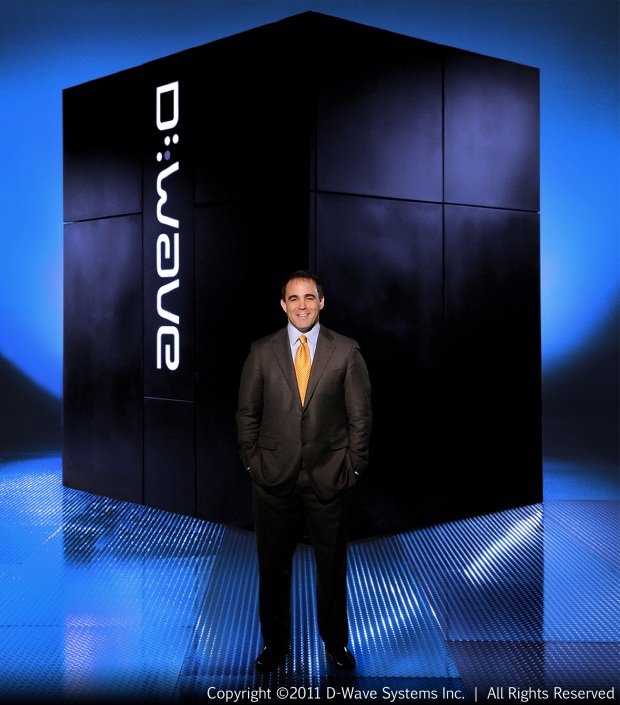Super-fast quantum computers are here! Sort of.


The promise of quantum computing, i.e. computing with the weird quantum effects associated with individual atoms, is a world in which calculations that are basically impossible on a conventional computer are accomplished in milliseconds. Today's ultra-secure cryptographic codes, for example, could theoretically fall to a quantum computer faster than you can say "I just pwned the world's entire financial system." So it's a big deal that in October Lockheed Martin paid $10 million to a company called D-Wave for a "128 qubit" quantum computer.
It's possibly an even bigger deal that D-Wave has revealed some of the inner workings of that device in a new paper describing calculations accomplished in a slightly less impressive 84 qubit computer.
The company says its papers are about 2 years behind the products its has running in the lab. D-Wave claims to have created a sort-of-kind-of secret quantum computer that no one outside the company has access to, yet.
This new chip, which no one has ever seen, much less tested, is a 512 qubit chip, and company CTO Geordie Rose says it's 1,000 times faster than the 128 qubit chip that the company sold to Lockheed Martin.
Experts in the field of quantum computing remain skeptical of D-Wave's claims to have created a "true" quantum computer. (Experts in the field also seem to be unable to agree on what constitutes a true quantum computer.) That hasn't stopped D-Wave, Lockheed Martin and the University of Southern California in Marina Del Rey from creating a quantum computing research facility.
Is it all a ruse to garner yet more funding? (They're all the way up to their fifth round of funding.) Or will D-Wave's ultra-fast 512 qubit computer finally do something notable. Odds are we won't know until it's been used to crack the security on and then take over the world's telecommunications, banking and defense systems.
This post was originally published on Smartplanet.com